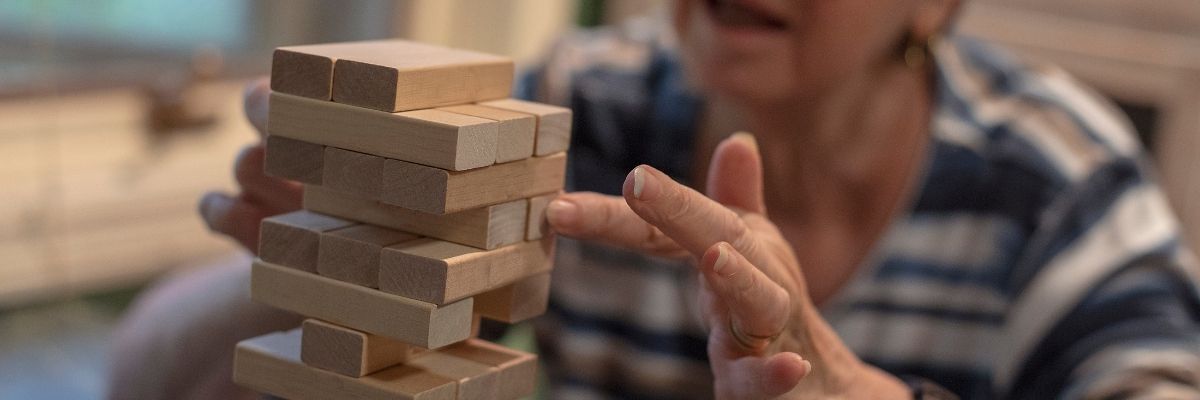Dementia activities and games
Dementia diagnosis is not a life sentence. We still can encourage and keep our elderly loved-ones busy by introducing various dementia activities and games. In the following article we will present some fun and engaging Alzheimer’s friendly activities and show you how to keep someone with dementia busy.
How dementia affects activities of daily living
Most of us know that dementia is a neurodegenerative disease negatively affecting cognitive functions. However, we must realize how greatly it impacts everyday life. Dementia is recognized as a progressive condition, it is important to remember that not every sufferer will face challenges associated with day-to-day activities. The three main functions affected the most are:
- Executive functioning – dementia patient loses the ability to correctly and efficiently plan and carry out multiple-step tasks. Your elderly loved-one won’t be able to perform goal-oriented errands. Mixing up the order in which the activity is supposed to be executed is not uncommon as well. That leads to difficulty with dressing and washing.
- Memory – losing long-term and short-term memory is a symptom of dementia and Alzheimer’s disease. Forgetting things like putting fresh clothes will lead to confusion and aggression.
- Judgement and attention – recognizing a dangerous situation is basic self-preservation instinct that can literally safe lives. Not being able to determine if you are safe will result in various injuries.
Free activities for dementia patients
Introducing creative ways to spend free time in your golden years is very important. However, we need to remember to keep routine, the structure of day intact. It helps to maintain the sense of purpose at the same time calming the aggressive behaviour. It is best to match the activity to each and every senior. Take into consideration their interest, what they like and what fascinates them.
Games
When playing with seniors you should avoid certain types of games that can pose a challenge for them. For example strategy-based (will most likely be too complicated and cause bewilderment), word-based games (at later stages of dementia it can be difficult to form coherent sentences). What games for dementia patients we recommend?
- Jigsaw puzzle – find something with big tiles and a scenery that senior would enjoy. The concept is easy and familiar, you can take turns solving it or even “work” on two different corners at the same time.
- Bingo – great activities for dementia patients that provides mental stimulation and encourages social participation.
- Noughts and Crosses (Xs and Os) – you wouldn’t have to buy any additional pieces, piece of paper and some pens is all that you need. This game is so simple and well-known that will be suitable even in the later stages of dementia.
- Painting – let’s not forget about more creative free activities for dementia patients. Working on one’s self-expression and imagination is important even when your’re older. Panting is an activity which will be enjoyed by many seniors.
- Cards – card matching game (e.g. battle) is not only a great fun, but also help improve concentration and memory.
Other activities for elderly with dementia
Find balance between cognitive and physical activates. The body and mind needs to be stimulated equally in order to live full and happy life. Remember that dementia activities need to be simple to accomplish. Accommodate any long-term health conditions and take into consideration limited mobility of your elderly loved-one.
- Folding laundry – by asking senior to be involved in simple household chores will give them a sense of purpose, they will feel needed. Additionally, it will help work on eye-to-hand coordination.
- Light gardening – fresh air and a little bit of exercise is the best possible combination for patients with first stages of dementia. Sunshine and serene green scenery can boost the immune system and relieve stress or anxiety.
- Creating a memory box – preserving memories is crucial especially for Alzheimer’s or dementia sufferer. Try to encourage them to collect their favourite photos, letter and other memorabilia in one place. Searching through a house and then through an old albums is not only a physical activity but also stimulates long-forgotten memories.
All the activities mentioned in the article are a great tool for keeping someone with dementia busy. You can consider putting on some music while playing with elderly loved one as it is often used by a therapist.




















